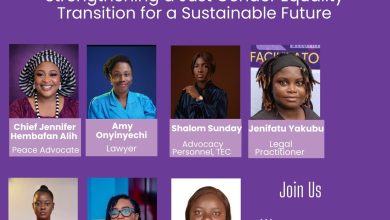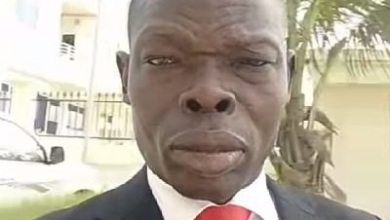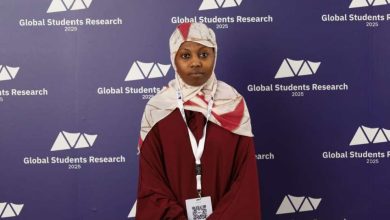Untold: Chidinma’s Silent Struggle with Sexual Assault and Disability

|
Getting your Trinity Audio player ready...
|
Chidimma Ekezie** was sexually assaulted in her father’s house by a relative who served as both an afterschool caregiver and a family helper in 2001. She attended an inclusive school downtown and stayed in his care after school until the family returned.
Aunty Ogechi “AMA, AMA,” she said, gesticulating and pointing at him. I turned and stared at the man, trying to figure out what was going on. Chi, “what is it,” I asked.
She repeated, “Aunty Ogechi, AMA, AMA.” I tried to make sense of what she was saying, but her caregiver at the time dismissed what she was trying to communicate.
“Never mind her,” he told me. But I was concerned. She looked distraught. I bent down and asked again what she meant; she repeated his name and pointed at her private part.
At that moment, I knew something was amiss. I gently took her inside the room and inspected her.
It took a while, but just like only teary-eyed Chidimma could with her usual slow and fragmented speech, she succeeded in stuttering through broken Igbo syllables, gesticulating her way through the pain and uncertainty of all that had transpired in her body that afternoon.
She mentioned in Igbo the private part and fingers, communicating that he grabbed her and thrust his fingers in between her legs several times. The blood stains on the pants said it all–how much she must have hurt. A man had sexually violated Chidimma.
Men violating girls with disabilities– A norm
In Nigeria, approximately five to seven million children live with disabilities. Chidimma Ekezie, a lively and fun-loving 7-year-old, is one of such minors. She was born with Downs syndrome, a genetic disorder caused by a copy of an extra chromosome leading to a slow intellectual development.
She also had a speech defect and a congenital heart problem requiring surgery. Climbing the two-story building to get to school took her over 30 minutes each day, so she was usually backed to save time.
The hole in her heart hindered her ability to complete tasks on time and prevented her from engaging in activities with her peers. Stooping, waiting, and panting to catch her breath on such walks were her usual routines, which made her dependent on external people for support.
Research by the Africa Polling Institute (API) suggests that about 28% of Nigerian women with disabilities also suffer sexual abuse. This affirms that women and girls with disabilities were more vulnerable to sexual abuse than women and girls without disabilities. Most violators are usually a close or known person, owing to their dependency on an external figure for assistance.
“Most perpetrators are caregivers, relatives and parents. Their immediate primary caregivers, friends and some family members stigmatise, maltreat and abuse them the most and is not always easy for them to report these cases. Most times, they decide to settle the matter in-house either using the members of the family or church pastors or Imam,” Florence Chima-Austin of Center for Citizens with Disabilities (CCD).
The fear that the family or caregiver may abandon them if they take the case up themselves creates a culture of silence.
Stings of Stigma
I was awash with anger, seeing her tears and distraught, helpless face. I couldn’t confront him because I had no convincing proof. It was silent fury till night when her parents returned, and I narrated the whole experience. They believed me but didn’t want the matter to ‘escape’ the room due to relationship ties and stigma.
Chidimma Ekezie was familiar to cardiologists for often turning blue and purple due to the low supply of blood from her heart, which made the hospital her not-too-desired go-to spot. She was loved by her family, attended the best inclusive school in town, and was often pampered with food and trips to the beauty salon, which was her happiest place.
A man sexually assaulting a girl is a human rights violation, but to be stifled into a spiral of silence is even worse.
Ejiro Okotie, a disability-rights advocate and founder of Hope Inspired Foundation for Women and Youth with Disabilities (HIFWYD), understands the challenging deterrent culture of silence poses at persons with disabilities in reporting violation cases.
Ejiro said, “Several persons decline reporting due to inability to advocate or speak up for their rights, for fear of being ostracized from their families, communities, fear of not being believed or even given the opportunity to speak.
“This weapon of silence initiated by family serves a dual purpose, a family preservation and social defence mechanism against stigma. It unknowingly is destructive, shuts the first real access to justice and sets them up on a roller coaster of distrust and pain.”
Away from the physical pain is the multiple psychological stings of stigma she would have to live with. Silence, a crude violator of the human will that further enables the violator.
Accessing Justice for Chidimma
Nigeria has an estimated 19 million People living with disabilities (PWDs,) representing approximately 10% of the population. The country has ratified international instruments, such as the United Nations Convention on the Rights of Persons with Disabilities (CRPD), and enacted domestic laws, including the Discrimination Against Persons with Disabilities (Prohibition) Act 2018. Despite these legal frameworks, accessing justice for PWDs is difficult.
“The Disability Act provides for the prosecution of violators. However, violations are underreported due to low self-esteem and feelings of alienation, which is the immediate response of most survivors. Sometimes, they shy away or withdraw the case due to family decisions. Hence the reason for underreported violation stories,” Florence Austin said.
Ejiro added:
“Unwillingness of those responsible to provide justice is another problem. The inaccessibility of the system, poor attitude of law enforcement agents and lack of proper implementation of existing disability legislation contribute to it.
“Also, absence of disability laws in some states and most importantly, absence of disability legal frameworks or disability inclusion at the local government level are some of the things that must be addressed.”
For most survivors of sexual abuse, the lack of trust in their immediate support system and the social system they belong to is also a major betrayal. Accessing justice starts from the home by relatives confronting the truth unbiasedly before approaching the legal arm of justice. Everything is botched and needless if the process is compromised at the first level.
However, accessing justice for all persons with disabilities is challenging. It requires rigorous implementation at two clusters of family and social justice stages. Survivors of male sexual violence most often experience psychological annihilation and disconnect between self and people.
Getting justice for Chidinma and other survivors would mean processing the multiple stings and impacts of the violator’s sting, the sting of silence and stigma from family, the sting of the social justice system, and developing the willpower to effect quick and accessible accountability for the next survivor of male violence.
A lot of advocacy and enlightenment must be done at the family level to crack the silence culture. In addition, society, including law enforcement officers, civil society organisations, families, and individuals must expedite action to protect women and girls with disabilities from male sexual assault. They must also ensure that survivors are believed and not stigmatised.
In the case of Chidimma Ekezie, she tried to live her life to the fullest until she died of a hole in her heart at 18 in 2013.
Editor’s note: The name in asterisks is a pseudonym to protect the child’s identity. Ogechukwu Ugwu, MSc Student of Mass Communication (2023/2024), produced this story following BONews Service publisher Blessing Oladunjoye’s training on Disability reporting.






